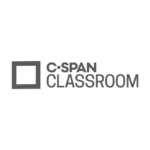In this lesson, students will hear Vanderbilt University Professor Joshua Clinton talk about the rise of public polling on political issues. They will view videos to learn about the impact of polling through historic examples of presidential elections, discover the significance of “who” participates in polls and “how” pollsters reach them as well as the importance of language in phrasing questions in polls and the timing in conducting them. At the conclusion of this lesson, students will consider factors in reading polls so they can make their own informed decisions about candidates.
Lesson Plan: Analyzing the 2024 Presidential Debates

This lesson has students view and analyze clips from each of the 2024 presidential debates. Students will view video clips of specific questions discussed during the debate and evaluate the effectiveness of each candidate’s response. This lesson will be updated to include clips from each of the presidential and vice-presidential debates as they air on C-SPAN.
Lesson Plan: Recognizing Propaganda in Political Speeches & Advertisements

In this lesson, students will learn about different types of propaganda by examining examples presented in the media. Students will then apply that knowledge to past and current presidential campaign speeches and advertisements. The lesson is divided into three sections. Section one introduces students to ten types of propaganda; section two asks students to watch C-SPAN video clips of past speeches and identify the types of propaganda utilized, and section three has students apply their new knowledge to the current election cycle using candidates’ speeches on C-SPAN. The lesson offers flexibility so any section can be revised to meet specific classroom needs and address teacher concerns.
Bell Ringer: Why Do We Vote on the First Tuesday in November?
Lesson Plan: Historic Presidential Elections – 1800 – John Adams vs. Thomas Jefferson

In the election of 1800, Vice President Thomas Jefferson of the Democratic-Republican Party defeated Federalist Party candidate and incumbent President John Adams in a contest that had to be decided by the U.S. House of Representatives. It was the first U.S. presidential election to be a rematch. In this lesson, students will view background videos to learn about what was occurring in the country leading into the 1800 election as well as the candidates who were running for the office of the presidency and their political parties. Students will explore the relationship between Thomas Jefferson and John Adams as well as their philosophies, and hear how campaigns were managed, how the voting process was conducted and how this election was determined after resulting in a tie. In conclusion, students will consider the legacies of this election and generate parallels to today.
Civic Engagement and How Students Can Get Involved
What rights and abilities do you have when it comes to advocating for issues you believe in? Use the lesson plan to discuss civic engagement and the role citizens play in making their voices heard.
History of Juneteenth and Why It Became a National Holiday
Students will explore and discuss the history and context around the Juneteenth holiday. Topics examined include the history of racial injustice in the U.S., the Civil War and the limitations of the Emancipation Proclamation. Additionally, students will be encouraged to explore the modern significance of Juneteenth and its long-term impact.
Washington’s Field Headquarters – Virtual Tour
To win the Revolutionary War, General George Washington needed the support of thousands of people with varying skills and perspectives. Using Washington’s sleeping and office tent, which survives at the Museum of the American Revolution, and replicas of this and his other military “equipage” as its starting point, this experience explores the experience at camp
Beyond the Battlefield: A Virtual Field Trip
Museums are great places to learn about life during the American Revolution, both on and off of the battlefield and both before and after the Revolutionary War itself. This virtual field trip features Lauren Tarshis, author of the I Survived… series of book from Scholastic, Inc., museum educator Adrienne Whaley, and curator Matthew Skic as
Finding Freedom – Interactive Online Storybook
Drawing from historical sources as well as contemporary analysis, Finding Freedom explores the lives and decisions of five real people of African descent living in Virginia in 1781, as the British and American armies battle across the state. Their first-person narratives – supported by classroom resources, including primary sources – feature points of decision-making to